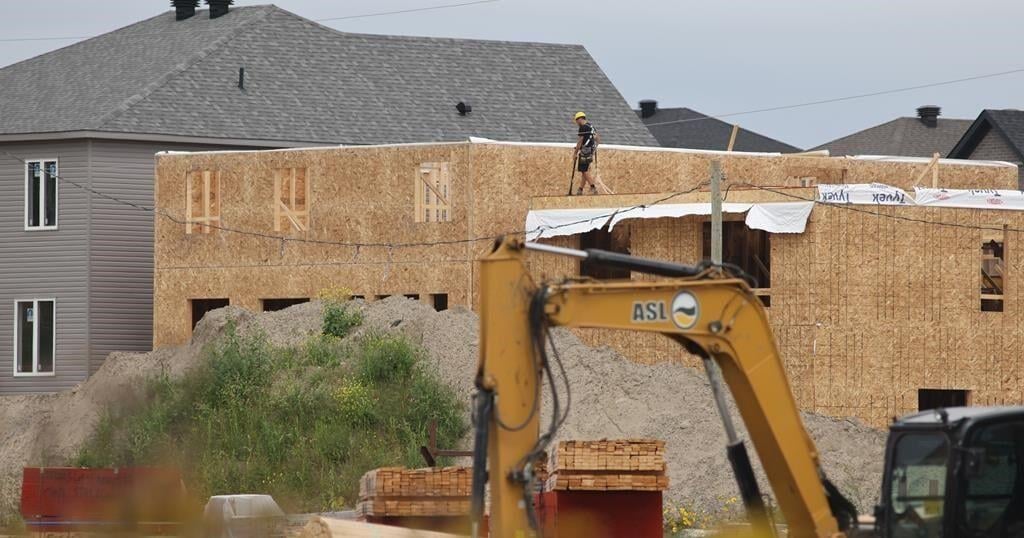Judging from the shape of the market in the last weeks of the year, 2023 will be more of a buying opportunity for those who’ve been sitting on the sidelines. The Vancouver real estate market has slowed, and with another interest rate hike expected soon, there’s reason to believe there will be more price drops in the next six months, say experts.
After a spectacular two-year high that shocked everyone amid a pandemic, the sobering reality is sales prices are down overall about 15% from the peak in February in Metro Vancouver, says realtor, blogger, and commentator Steve Saretsky. It’s pretty sporadic and realtors and mortgage brokers are seeing it first-hand, he adds.
“Certain products are getting hit a lot harder than others,” says Saretsky. “As of last month, sales were the lowest since 2008. Two months ago, they were the lowest in 20 years. It depends how you slice it. We are pretty much running at decade-plus lows, so not a whole lot of activity… even the top producers will see a hit for sure.”
Some new buyers will also be hurting. For example, if someone borrowed $1M at an ultra low variable rate, they could be looking at around $2,200 more a month. However, it will take months before missed payments and mortgage defaults show up in the data.
“There are definitely people out there stretched thin and these rate increases are definitely hurting, but that might not show up on the housing market for a while,” says Saretsky.
Not so long ago markets across Canada were on fire, including secondary markets further from the urban core. Now those secondary markets around Vancouver have seen big drops, such as Chilliwack, which has seen a 25% decline, he says. Vancouver city’s condo market has seen maybe a 5% to 10% price decrease, at the high end.
And the rental market has done the reverse — going from a slightly higher vacancy rate in downtown Vancouver during the pandemic back to a low 1.2% rate. That’s exacerbated rents that come online, which have shot up an estimated 25% in Vancouver and Toronto. First time buyers who might have purchased are now fuelling demand for rental apartments.
We can blame the interest rate increases, but they don’t tell the whole story, says Saretsky. “Even if interest rates had stayed where they were at, you would have seen it slow down,” he says.
The fear of missing out that drove pandemic buying was sure to drop off once people stopped panicking, he says.
“Everybody bought a house in the last two years. Even renters were moving, saying, ‘I don’t want to be in a studio apartment with COVID. I’m going to go rent a townhouse in the suburbs.’
“If you were looking for a house to rent in the suburbs, there were line-ups out the door. Everybody was moving for one reason or another for the last two plus years.
Now, anywhere you go, the rental market is pretty tight and rents have gone up. Downtown rents, they were probably where [they were] pre-pandemic, a two-bedroom was $3,000 and now it’s $3,400 and $3,500.”
Mortgage broker Alex McFadyen, of Thrive Mortgage Co., says he saw a delayed reaction when people saw prices climb in the fall of 2021. They finally decided to sell in the spring of 2022, which is the typical time, but by then buyers were burned out. Once rates started to climb, “everything imploded.”
“How do you describe it other than the exact opposite of what happened in 2020?” says McFadyen. “It was like someone switched a light switch. And we know what that was — consumer sentiment, properties coming back onto the market, rates changing. These things were turning people completely back around.”
He says the dramatic turning point was in June.
“I can speak probably pretty frankly because we have quite a few applications that come in. There was a clear time when the conversation changed. It was June that it started tapering off, as it typically does in a normal market, especially Vancouver, “But June really fell off. And July continued the trend, and we literally had 50% of the applications in July than what we had in January.
“How fast it happened and how much it fell was a surprise. It wasn’t shocking by any means. But how fast it happened and how much it fell was a little bit of a surprise. And anybody who says otherwise is full of beans.”
One trend underway is the three-year fixed rate, with buyers choosing the short term in case interest rates go back down. Another trend he’s seeing is landlords selling off properties because they aren’t cash flowing. Unable to increase the rents, they’re opting to sell instead. Some purchases are falling apart due to financing. He advises people to get second opinions.
As usual, people are continuing to hold off until spring to buy. He says he hears his clients speak about the plan to buy in the spring in almost all his pre-approvals conversations. But the limiting factor this time around will be qualifying. That factor will determine how the rest of 2023 plays out. The general expectation is that prices will continue to drop for the next two to four months, but that could go longer, he says.
“I think the only thing stopping things from going back up in price is the qualifying rate staying high because people are having trouble qualifying. Without that, I really don’t see any reason why prices won’t start to go back up some time towards the end of next year, subject to how many people qualify.”
To put it in context, he says, back in May the qualifying rate was 5.25%, whereas most people are now looking at qualifying at a 7 to 7.5% rate to get into the market. That represents a 15 to 20% reduction in borrowing power, if not more in some cases, he says.
However, for people who can qualify, they have options and time to do inspections and make offers. With prices lower, the mortgage is lower, which helps offset the rate hike.
“Why is it a good time when they are going up and a bad time when prices are down? This is what I try to educate people about. This is not the stock market. You are going to be owning this real estate for five, 10, 15 years in most cases. Unless you are a speculator, this is one of the best times to buy in ages.”
Source link
Related
























